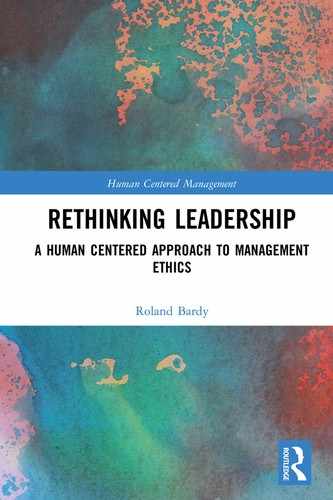Book Description
Leadership, corporate responsibility and management ethics underline the human centered paradigm in the complex world of today. One major issue in management is impact on people. This book relates to the outcomes of human interaction within and beyond the borders of an organization. It discusses what motivates moral behavior at the individual and the collective levels, how morality is engrained in markets and how it is deployed in business processes and stakeholder relations. The book shows that human centered management is built and consolidated in four complementary dimensions: ethical, social, economic and institutional. It emphasizes that moral managers and moral markets are essential for business sustainability.
Rethinking Leadership covers ethics development from its origin to help managers understand and confront the 21st century's increasing challenges and disruptions. Its clear narrative and cogent examples bridge scholars and practitioners, with distinctive examples on how to implement human centered management and how to teach the subject to executives.
The author has 30 years of business experience in developed and developing countries and 20 years in academia in the US and in Europe, which provides solid background to effectively and affectively discuss the topic from the multiple angles.
